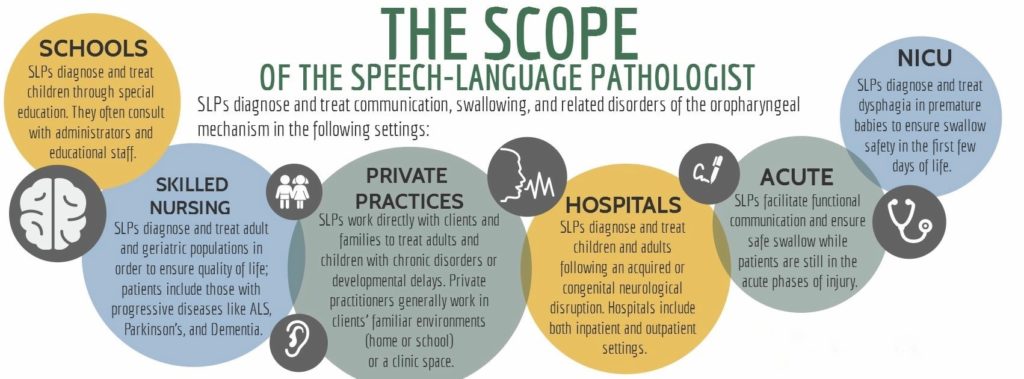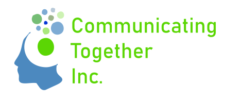Communication Difficulities
As communication is a complex interaction, there are many areas that can affect its flow. Speech sound disorders, phonemic awareness difficulites, feeding and swallowing issues, stuttering, expressive and receptive language concerns, social language difficulties, and many medical conditions all influence our ability to communicate.
How can we help?

Speech Sound Disorders (developmental or acquired)
Most children make some mistakes as they learn to say new words. A speech sound disorder occurs when mistakes continue past the expected age of development. Every sound has a different age when the child should make the sound correctly. Speech sound disorders include problems with articulation (making sounds) and phonological processes (sound patterns). Adults can have speech sound disorders. Speech sound disorders can also be a result of stroke, brain injury, or structural deficiencies. Their speech may be difficult to understand because they speak slowly or indistinctly. See development page for specific sound development.
Phonemic Awareness Skills
These skills are early building blocks for learning how to read. Children who have difficulty recognizing sounds (not letters) in words, being able to blend sounds into words, manipulate sounds in a word, or segment a words into it’s individual sounds often struggle in learning to read. Targeting the child’s ability to recognize and manipulate individual speech sounds in words can improve decoding skills.
Feeding and Swallowing
Difficulties in development of feeding and swallowing or in the rehabilitation of these skills after stroke or injury. Difficulties with swallowing (Dysphagia) can be life-threatening. Instrumental evaluations are most often necessary to help determine a treatment plan. See development page for feeding and swallowing development.
Stuttering
Stuttering is a communication disorder in which the flow of speech is broken by repetitions (li-li-like this), prolongations (lllllike this), or abnormal stoppages (no sound) of sounds and syllables. There may also be unusual facial and body movements associated with the effort to speak. Stuttering is also referred to as stammering or dysfluencies. See development page for fluency development.
Childhood Apraxia of Speech (CAS) and Motor Speech Disorders.
Children with CAS have problems saying sounds, syllables, and words. This is not because of muscle weakness or paralysis. The brain has problems planning to move the body parts (e.g., lips, jaw, tongue) needed for speech. The child knows what he wants to say, but his brain has difficulty coordinating the muscle movements necessary to say those words. Children with CAS are often extremely difficult to understand. CAS is often confused with other speech sound disorders and should be diagnosed by a Speech Language Pathologist.
Cleft Lip/Palate
If a child has only a cleft lip, speech development should be typical or very close to typical. Children with cleft lip and palate or cleft palate only often need speech intervention to monitor speech development and to treat any speech delays or errors that they might develop. Some children will require speech therapy. Others will require further surgery. While some children may require both.
Receptive Language Deficits (developmental or acquired)
Some adults and children have problems with understanding language (receptive language). They may have trouble:
- Understanding what gestures mean
- Following directions
- Understanding questions
- Identifying objects and pictures
- Understanding vocabulary or concept words
- See development page for specific receptive language development.
Expressive Language Deficits (developmental or acquired)
Some children and adults have problems talking or using language (expressive language). They may have trouble:
- Asking questions
- Naming objects
- Using gestures
- Putting words together into sentences
- Using correct pronouns, like “he” or “they”
- Knowing how to start a conversation and keep it going
- See development page for specific expressive language development.
Pragmatic Language Deficits
Deficits in social skills, also called pragmatic language, are often associated with Autism Spectrum Disorders and Fetal Alcohol Spectrum Disorders. Your child may have problems using social skills to connect with other people. He may seem to be in his own world. It may be hard for him to share a common focus with another person about the same object or event-known as joint attention; play with others and share toys; understand feelings; or make and keep friends. See development page for social and play development.
